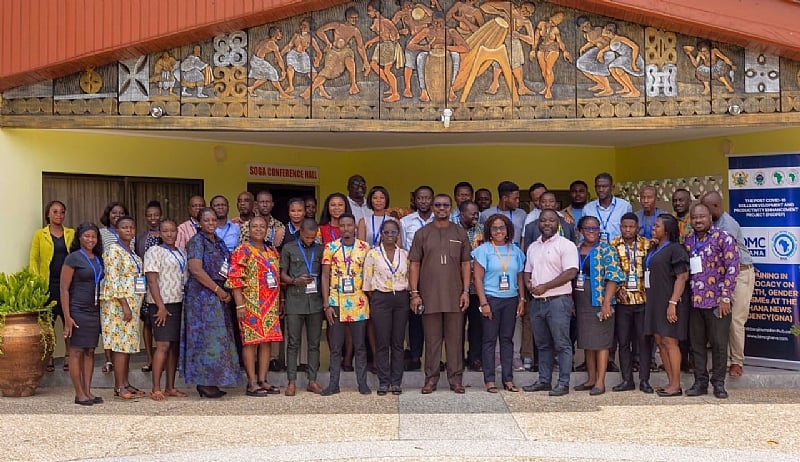The journey of small businesses often begins as simple ideas and dreams, but many fail to reach their full potential. In Ghana, Micro, Small, and Medium Enterprises (MSMEs) are fundamental to the economy, making up about 70% of its Gross Domestic Product (GDP) and employing over 80% of the workforce. Despite their significant contributions, these enterprises face numerous obstacles that hinder their development. A World Bank Enterprise Survey found that roughly 40% of MSMEs in Sub-Saharan Africa cited access to finance as a major constraint, notably more than the 25% reported by larger firms. Additionally, in Least Developed Countries (LDCs), 41% of SMEs cited financing, high-interest rates, and significant collateral requirements as substantial barriers. These challenges are exacerbated by difficulties in accessing markets and adopting essential technology, further complicating their ability to thrive.
The importance of MSMEs in Africa cannot be overstated. According to the survey, Africa has around 600,000 formal MSMEs and over 40 million micro-businesses, which collectively account for about 90% of all businesses, provide around 80% of jobs, and contribute 40% to the continent’s GDP. Despite their critical role, recent trends indicate a significant decline in financial support for MSMEs. The Bank of Ghana’s latest Collateral Registry report revealed a drastic 54.9% reduction in the total value of loans secured by banks and specialized deposit-taking institutions, dropping from GH¢13.2 billion in 2022 to GH¢5.9 billion in 2023. This downturn reflects a systemic issue around access to finance that greatly affects business owners like Ms. Genevive Amevor, who reported repeated bank rejections due to insufficient collateral.
The challenges faced by MSMEs carry potential economic repercussions that may hinder job creation and innovation. Experts, including Dr. Martin Thompson Ntem from the Institute of Digital Marketing and Communication in Ghana, stress that if MSMEs cannot secure necessary resources, overall economic growth may stall, leading to increased unemployment rates. He highlights the critical role these enterprises play as employers, particularly for youth and first-time job seekers, contributing to local community development with adaptable job opportunities. Dr. Ntem’s remarks were made during advocacy training funded by the African Development Bank to equip journalists with storytelling skills aimed at raising awareness of health, climate change, gender issues, and challenges faced by MSMEs.
To address the myriad challenges confronting MSMEs, various stakeholders, including policymakers and industry leaders, advocate for improved access to finance through specialized loan programs and lower interest rates. Additionally, they call for better market access facilitated by trade agreements and enhanced support for technology adoption via training programs and digital infrastructure development. Stakeholders emphasize the need for concrete government initiatives supporting these enterprises, as expressed by fashion designer Ms. Georgina Offebia, who urged for policies that promote entrepreneurship and job creation.
In response to these pressing needs, the Ghanaian government has initiated several support programs for MSMEs such as the Obantanpa Project, which offers emergency relief funds to mitigate the impact of COVID-19, and YouStart, which aims to assist young entrepreneurs in establishing commercially viable businesses. The National Entrepreneurship and Innovation Programme (NEIP) has also been implemented to provide integrated support for startups and small businesses. While these measures are welcomed, many industry leaders believe that ongoing support is crucial for sustainability and growth. Prince Adufah, CEO of PrinceYOGO, highlighted that the request is not for merely financial handouts, but rather for a fair playing field that facilitates growth and competition.
As Ghana’s economy continues to evolve, the fate of MSMEs remains uncertain. The critical question that looms is whether policymakers and industry leaders will adequately respond to the pressing requests for assistance from these enterprises or allow existing barriers to persist. The outcome will determine the future of these essential economic drivers, who are integral not only to the local economy but also to job creation and innovation in Ghana and across Africa. The journey of MSMEs, rife with challenges, underscores the necessity for concerted efforts between government bodies, financial institutions, and industry stakeholders to create an environment conducive to growth and resilience for these foundational enterprises.














